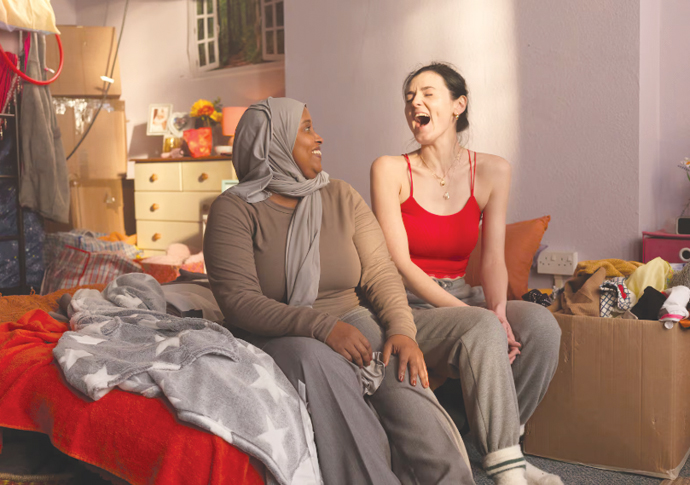Lollipop: powerful film that deals with poverty and homelessness comes from director’s heart
Story of mother negotiating a system that feels designed to set her up to fail sits firmly in the Ken Loach school
Friday, 13th June 2025 — By Dan Carrier

Idil Ahmed and Posy Sterling in Lollipop [Tereza Cervenova/MetFilm]
LOLLIPOP
Directed by Daisy-May Hudson
Certificate: 15
☆☆☆☆☆
THIS film is another testament to the power of cinema to both profoundly move you as an individual – but hopefully shed a light on our society, and act as a call to arms.
Lollipop sits firmly in the Ken Loach school and has been compared to his seminal 1966 work, Cathy Come Home, about poverty and homelessness.
Director Daisy-May Hudson, who in her early 20s documented her family’s homelessness for film, has created a powerful feature about a mother trying to negotiate a system that feels designed to set her up to fail.
The director’s backstory means this film is from the heart, and makes it impossible to look away or build up a counter to the points that slowly reveal themselves.
We meet Molly (Posy Sterling) as she finishes a four-month prison sentence. Her council home has been taken away – going to prison means she is registered as making herself “intentionally homeless”.
Her two children, Ava and Leo, have gone to stay with her mum, Sylvie (Terriann Cousins) – but Sylvie has problems and so the children have been taken into care.
We embark on a journey with Molly as she tries to navigate a world that feels designed to make her life as hard as possible, to be as complicated, costly and inconclusive as it can be, to have hoops and hurdles at every turn.
With believable performances that draw you in, we share the sense of hopelessness and danger – from the worry of coming out of a prison gate and then having to set up a tent in a London park because Molly has nowhere else to go, to the infuriating experience of dealing with poorly paid, demotivated frontline staff who are seen as the agents of a broken system.
Molly won’t get her kids back until she has a house – and she won’t be given a house until she gets her kids back. Such is a recognisable Catch-22 so many find themselves in and that Hudson’s film so eloquently, and woefully, portrays.
The story progresses as we watch Molly’s reaction to this series of “unfortunate circumstances” that is rash and counterproductive. But ask yourself, what would you do?
She finds an ally in an old friend Amina (Idil Ahmed), and the plot follows them as they try to be the parents they want to be, facing down a world against them.